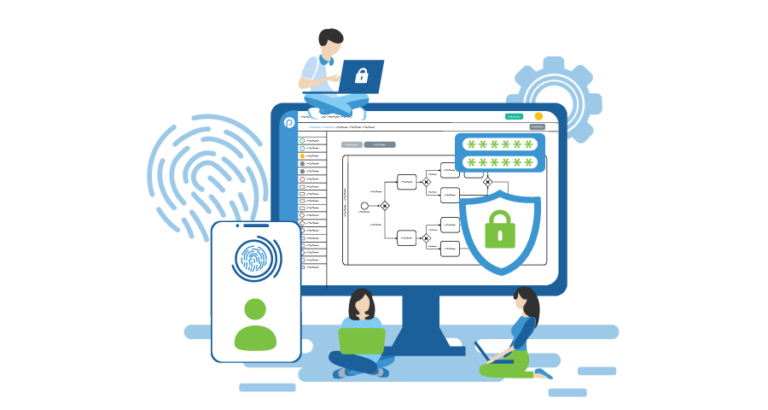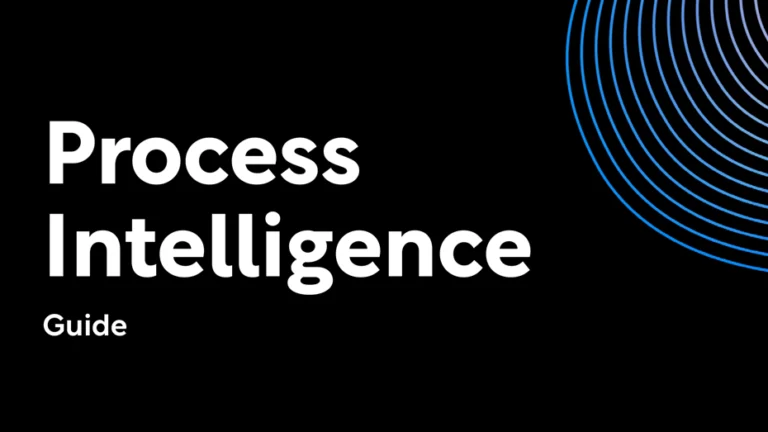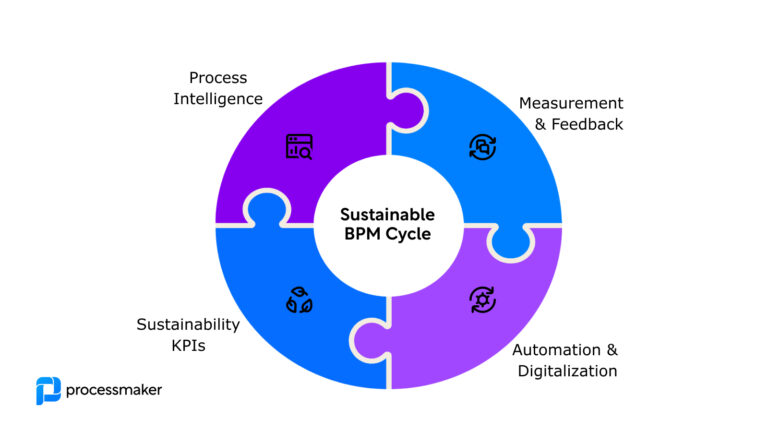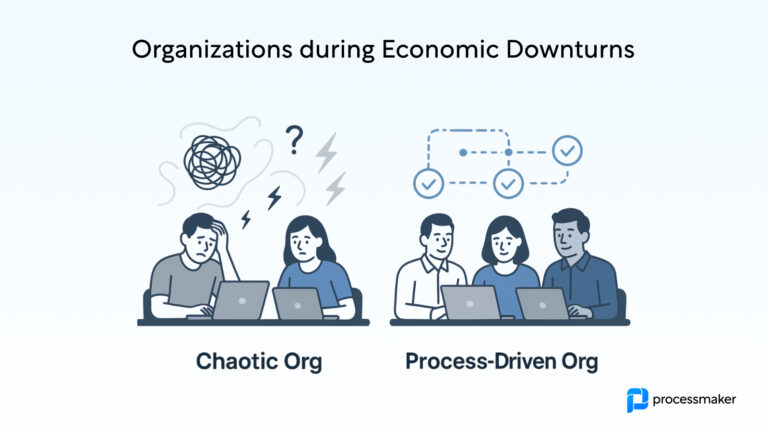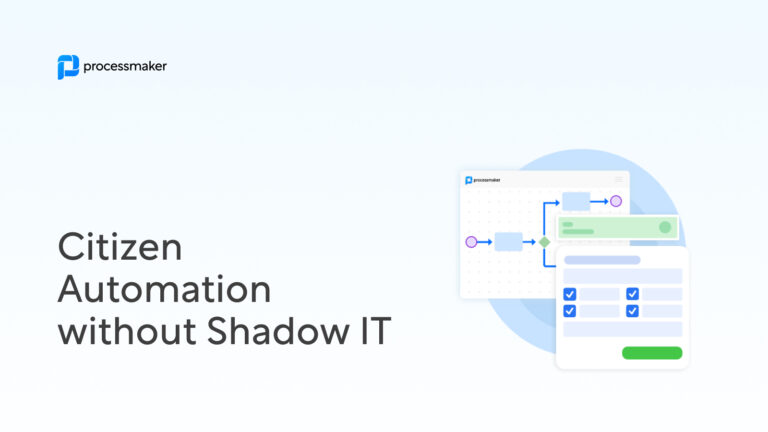Digital transformation is a big concept that can be hard to understand. For some, it’s something that only IT organizations should worry about. For others, it’s confused for a digital strategy (which isn’t the same thing). To help illuminate what digital transformation actually looks like, here are five digital transformation examples across industry enterprises:
1. Tulsa Community College
Tulsa Community College (TCC) is the largest two-year school in the city. To serve roughly 25,000 students each semester, TCC employs more than 2000 people across four campuses.
Like many colleges (and perhaps one of the most common digital transformation examples for colleges) TCC relied heavily on manual, paper-based processes before going digital. For its staff, this meant scrambling to review and approve applications and various request forms that frequently required sign-off from faculty on neighboring campuses. For its students, this meant schlepping paperwork from one location to another to hunt down signatures.
With an interoffice mail system in place, the shortest turnaround time for forms was six hours. More often, the staff at TCC contended with time-consuming and tedious workflows rife with back-and-forth.
With ProcessMaker’s workflow automation suite, TCC was able to transform its campuses, speed up response times and approvals, and focus more on delivering an exceptional student journey.
2. P2 Energy
P2 Energy is best known for providing accounting and financial software to energy corporations. With offices in 12 cities, P2 Energy has a diverse client roster and is home to almost 700 employees.
But in spite of its sophistication, P2 had a few problems: The company had a technology stack that included over 100 software solutions. And its workflows lived in a specific application that didn’t include the company’s lease approval process.
As its customer base grew, P2 struggled to justify its use of outdated and expensive-to-maintain platforms that required staff to pull information from various sources. They needed a workflow solution that would complement their existing systems while empowering them to efficiently meet the needs of all customers.
Then P2 adopted ProcessMaker. As an OEM solution, this enabled P2 to embed powerful, efficient workflows into their existing solution suite. Most importantly, it enabled the organization to connect several systems into one platform to solve customer requirements across the enterprise and at scale.
3. NuevaTel PCS
NuevaTel PCS is one of the leading telecommunication companies in Bolivia, Haiti, and the Dominican Republic, with over a million mobile customers in the Bolivian market.
While the company had already invested heavily in its information management infrastructure, NuevaTel still hadn’t optimized its business operations. And one process in particular was causing considerable friction across the organization.
Before its digital transformation, NuevaTel’s procurement process was:
- Centralized: Employees of both central and regional offices had to contact procurement officers at headquarters to file purchase requests.
- Phone and email-based: Employees would usually have to call multiple times to check on their application status, causing officers to devote considerable time to managing and verifying their requests.
- Not standardized: Purchasing agents received applications lacking a standard format, which necessitated more phone calls to clarify aspects of the requests.
- Plagued with various approval levels: Some request were immediately “approvable”, while others required sign-off from executive management or the company’s legal department.
To solve these issues, NuevaTel needed a workflow automation tool that was 100% web-based—and they chose ProcessMaker. After its digital transformation, NuevaTel dramatically reduced the duration of its procurement process while gaining data-based visibility into potential bottlenecks.
Best of all, NuevaTel was able to replicate its success with other processes by automating and standardizing activities while eliminating paper forms.
4. Lenovo
As the world’s second-largest PC vendor, Lenovo is among the best digital transformation examples. Lenovo designs and manufactures a host of personal technology products. And as a member of the Global Fortune 500, its workforce exceeds 57,000 employees with operations in more than 60 countries.
But in spite of Lenovo’s success, the organization faced some serious challenges prior to its digital transformation:
- Complex and multinational operational hierarchy: With headquarters in the United States and China, research centers in Japan, China, and the United States, and manufacturing plants around the world, the company had a lot of data to reconcile.
- Unstructured customer service email communication: Lenovo serves customers in over 160 countries, and their customer fulfillment departments struggled to stay ahead of customer interactions occurring in unstructured email environments.
In addition, Lenovo realized that cloud-based communication would bolster inter-department collaboration by reducing the need for unnecessary emails across the board.
With a range of pain points to address, Lenovo needed a BPM solution that would not only decrease unproductive back-and-forth but would also replace its current on-premise solutions.
Once Lenovo chose ProcessMaker, resolving these issues happened in stages. By phase three, the organization was able to merge one process involving two departments, reducing its duration from six days to two. For Lenovo, eliminating inefficiencies from its business processes also lead to significant improvements in customer satisfaction.
5. Renaissance Construction
Renaissance Construction is the 36th largest contracting company in the world.
Established in 1994, Renaissance builds shopping centers, airports, factories, cement plants, offices, hotels, marinas, and hydroelectric plants—either as a general contractor or equity investor—in seven countries across the globe.
But having a global workforce posed several challenges for its HR department. For the human resources team at Renaissance, an abundance of manual, paper-based request workflows meant:
- Collecting multiple signatures from different managers within the organization
- Managing an overwhelming number of questions from staff regarding the state of their requests
- Placing calls to numerous people within the organization to determine the state of staff requests
Making matters worse, paper-based requests were often lost or forgotten on desks. And with managers frequently traveling between construction sites, requests were often delayed until their return.
With the use of ProcessMaker, Renaissance replaced paper-based forms with dynamic, automated workflows to collect required signatures. As a direct result of digitizing numerous paper-based processes, Renaissance reduced the time necessary for each request, boosting employee motivation and productivity in the process.
Is your organization ready to go digital?
Digital transformation examples are often misunderstood, but it’s one of the most sustainable ways for organizations across industries to meet the evolving needs of their most precious resource: customers. Download our whitepaper Accelerate Digital Transformation with Low-Code iBPMS or try a free 7 day trial.
